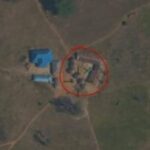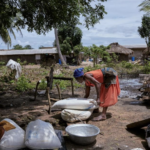Huawei Cultivates ICT talent seeds in Nigeria:
More than 50,000 individuals in Nigeria have benefited from Huawei’s multiple ICT talent initiatives. These programs have played a vital role in building the country’s digital capabilities and empowering the workforce with the skills needed for the evolving digital landscape.
The ICT for Change program offered E-Government, Cyber Security, 5G, Cloud Service, Big Data and AI training to over 3,000 federal government civil servants. The Engineering Training program, to upskill ICT workforce to better innovate for development of ICT engineers in Nigeria, devoted in cultivating Nigerian ICT talents with the total audiences hitting 13,399.
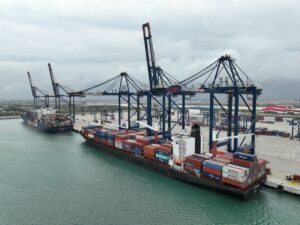
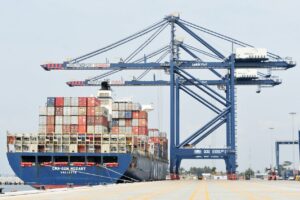
Other initiatives like the ICT Academy, Seeds for the Future, ICT Job Fair and ICT Competition are programs for the youths by encouraging and empowering the youths to build a positive talent Eco-system. Huawei ICT Academy trained 162 Nigerian academies and over 37,000 students. Huawei Seeds for the Future sponsors 10 Nigerian students to travel China for technology and cultural exchange every year. Huawei Job Fair helps over 8,000 students and job seekers get a chance for job interview, amongst over 500 got job or internship offer from Huawei and Huawei Partners.
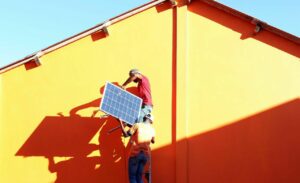
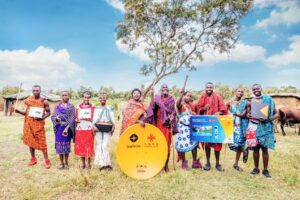
The Huawei ICT Competition, which commenced in 2015, has become a global platform for nurturing talent in the field of information and communication technology. Over the years, the ICT competition has made a significant impact in Nigeria, with the country’s students consistently demonstrating their abilities. Since its introduction in 2018, Nigeria has participated in four sessions of the competition, achieving notable success.
The country secured the grand prize in both the network track and cloud track in the 2019/2020 edition, followed by another grand prize in the network track in the 2021/2022 edition. In 2023, the Nigeria Innovation Team’s historic victory in the Innovation Track further solidifies the country’s reputation as a hotbed of technological talent.
Expressing her delight and appreciation for the competition, Jimoh Maryam Ololade, a member of the winning ABU-based Nigeria Innovation Team, shared her impressions of the vibrant city of Shenzhen, China. She marveled at the city’s rapid development, innovative spirit, and its position as a global tech hub. Ololade described the competition as a remarkable experience that showcased the passion, creativity, and talent of all participants. She attributed their team’s success to the collective dedication, hard work, and support from individuals such as Professor M.B. MUAZU, their instructor Mr. Aliyu ISA ELAYO, professors, and lecturers from ABU’s Faculty of Engineering & Law, as well as Huawei Nigeria.
Additionally, beneficiaries of Huawei ICT talent contribution are beyond the talent programs. Olugbile Felix Adeolu, an engineer at Huawei Lagos office who changed his own destiny through gaining ICT skills in Huawei. What’s more, Felix contributed to his hometown’s rural network project, bringing connectivity and opportunities to the vast rual areas of Nigeria.
Huawei’s commitment to talent development aligns with Nigeria’s aspirations to build a robust digital economy and harness the potential of technology for sustainable growth.
Through the “Three-Year Plan, Thirty Thousand People” project, Huawei plans to further cultivate more ICT talents to address the local shortage of ICT skills and enrich the talent pool. With Huawei’s continued commitment to nurturing talent and advancing technology in Nigeria, the future looks promising for the country’s digital landscape, and the nation’s talents are poised to make even greater strides in the field of ICT.
In August 2023, Huawei solidified its commitment for cultivating ICT talent seeds by signing memoranda of understanding (MoUs) with the National Board for Technical Education (NBTE) and the University of Port Harcourt.
Speaking at the signing ceremony, Deputy Managing Director of Huawei Nigeria, Mr. Stephen Zou, emphasized the company’s commitment to supporting Nigeria’s talent development ecosystem. He said, “We gather to connect with our valued academic partners, brought together by the Huawei ICT Talent Ecosystem. This collaborative framework aims to foster strong ties in ICT talent cultivation and development, which is crucial for advancing Nigeria’s digital transformation. We commend all those present for the progress achieved so far.”
“We recognize the solid foundation laid by esteemed institutions such as Ahmadu Bello University, Abubakar Tafawa Balewa University, University of Ibadan, University of Port Harcourt, and many more. Your dedicated nurturing of ICT talents underscores your pivotal role in propelling talent development within the nation. Since 1999, Huawei has thrived in the enabling Nigerian environment, emerging as a premier ICT solution provider. Our ICT talent cultivation initiatives exemplify this approach, including the Seeds for the Future program, Huawei ICT Academy, Huawei ICT Competition, and The Job Fair. We firmly believe that Digital Transformation hinges on talent, not just technology,” he added.
Huawei, founded in 1987, is a leading global provider of information and communications technology (ICT) infrastructure and smart devices. With integrated solutions across four key domains – telecom networks, IT, smart devices, and cloud services – Huawei is committed to bringing digital to every person, home and organization for a fully connected, intelligent world.
The Lagos-Ibadan Railway
The Lagos-Ibadan Railway, undertaken by China Civil Engineering Construction Corporation Nigeria Limited, stands as the first modern double-track standard-gauge railway in the West Africa. It serves as a crucial component of the ECOWAS’s “Interconnectivity” railway network and represents the second phase of Nigeria’s railway modernization project. As the flagship project of Sino-Nigerian practical cooperation, the Lagos-Ibadan Railway adheres to Chinese railway standards and achieved the fastest construction pace by Chinese enterprise in the West Africa.
In June 2021, the Lagos-Ibadan Railway, connecting Nigeria’s economic hub, Lagos, with the industrial center of the southwest, Ibadan, officially commenced commercial operations. To date, it has safely transported over 1.33 million passengers. Recently, the railway introduced dedicated freight services, establishing a vital link between the port and rail, thus expediting the flow of import and export goods, alleviating port congestion, and contributing significantly to the growth of Nigeria’s largest port, the Lagos Apapa Port. It also plays a key role in promoting the development of export-oriented economies in the surrounding areas.
Throughout the project’s construction and operational phases, a strong commitment to local engagement has resulted in the direct creation of a minimum of 5,000 employment opportunities within the local community each year and indirectly supporting the employment of at least 20,000 individuals. The Lagos-Ibadan Railway project has also made substantial efforts in talent development, offering training in various roles related to engineering construction and railway operations, facilitating the transfer of professional expertise, and CCECC has organized hundreds of training sessions to contribute to the cultivation of talent for Nigeria’s railway modernization.
Lekki Port
Lekki Port, the first deep sea port in Nigeria, is developed by CHEC with the BOOT model, and finished the construction in the October of 2022. The concession period is 45 years (three years’ construction included). The shareholders of the port are: CHEC, Tolaram, the Lagos Government, and Nigerian Ports Authority. Lekki Freeport Terminal, a joint venture enterprise owned by CHEC and CMA-CGM, is the container operator for the Port.
Phase 1 of the multipurpose Port, with an overall investment of 1.044 billion US dollars, have developed two container berths, 680 meters quay, and 16.5 meters deep channel; it is also equipped with 7 ship-to-shore cranes and 21 RTG cranes; the port yard covers 20 hectares, can accommodate 55,000 TEU. The port will be sufficient to handle 18,000 TEU vessels, and has a total capacity of 1.2 million TEUs annually. Lekki Port began the commercial operation in April 2023.
For a long time, the ports in Lagos have been facing traffic congestion, low draught level, poor cargo distribution capability, and undeveloped road network, thus Nigerian foreign trade has been significantly impeded, and Nigeria was losing the transshipment hub status to other West African countries in the past decades. Lekki Port will be the game-changer. Situated in the Lagos Free Zone, Lekki Port is ideally positioned to service the gateway for Nigeria and the surrounding West African region; equipped with world-class machines, it is the first automated port in Nigeria, and will allow rapid customs clearance and significantly reduce the time of cargo handling. Lekki Port will promote the take-off of Nigeria’s economy and the prosperity of foreign trade, flourish many related industries, and create massive jobs. It is estimated that the overall economic benefit will reach $361 billion over the next 45 years, and 170,000 direct and indirect jobs will be created.
Access to Satellite TV for 10,000 African Villages
In 2015, when Chinese President Xi Jinping attended the Johannesburg Summit of the Forum on China-Africa Cooperation, he announced that China would help implement satellite TV programs for 10 thousand African villages. The project, known as “Access to Satellite TV for 10,000 African Villages”, has been undertaken by StarTimes, the leading digital-TV operator in Africa. There shall be 10,112 rural villages of 23 African countries benefiting from the project. Each village is aided with two StarTimes Projector TVs, one 32 inch Digital TV set, and 20 DTH decoders with satellite dishes. Projector TVs and Digital TV set are equipped with solar power systems and DTH access units. The Projector TVs and Digital TVs set are available in the public area of the village, like school or youth development committee, which allows all villagers to enjoy the wonderful digital TV programs of 20 channels including the national station, local channels and international channels.
The “Access to Satellite TV for 10,000 African Villages” project has established a wide coverage of programme signals, a secure and reliable infrastructure network and a comprehensive operating system, enabling people in remote areas to have stable and long-term access to the world’s information, thus bridging the digital divide between urban and rural areas in Africa.
Zungeru Hydropower Project: China-Nigeria Partnership at its Best
The Zungeru hydropower project, located on the Kaduna River in Niger State, Nigeria, is a 700MW hydroelectric facility built by a Chinese consortium comprising Sinohydro Corporation Limited and China National Electric Engineering Company. The project costs about $1.3bn (₦162.9 billion), is the biggest power project completed in Nigeria in the past ten years and one of the biggest power projects in Africa to avail preferential loan facility from the Export-Import Bank (Exim Bank) of China.
The project is designed to generate 2,630 GWh energy with a total installed capacity of 700MW. The main components of the Zungeru hydropower project include a 2,400m roller-compacted concrete (RCC) gravity feed dam, an underground powerhouse located behind the RCC dam, a tailrace channel, and two switchyards on both banks of the river.
The Zungeru project is estimated to generate 2.64 billion kWh of electricity annually, which will meet close to 10% of Nigeria’s total domestic energy needs. It will also provide flood control, irrigation, as well as water supply and fish breeding facilities.
The construction works on the power plant started in May 2013 The engineering, procurement, and construction contract was awarded to a Chinese consortium comprising China National Electric Engineering Company (CNEEC) and Sinohydro. On August 15th 2023, the project was successfully handed over to the Nigeria Government.
The Zungeru hydropower project is a testament to China-Nigeria partnership at its best and is set to make a significant contribution to Nigeria’s power generation capacity.

